Updated 11/9: The MCU shows no signs of getting any smaller, does it? And now that Agatha All Along has wrapped up, it’s time to see where the show sits in our ranking, from worst to best, of the whopping 28 Marvel series that have premiered since 2013. Prepare for some ambitious Netflix fare, sturdy star vehicles, head trips like Legion, and—hang on, Helstrom, we’re getting to you—those not-so-hot titles, too. Dig in and let the non-superpowered fighting commence.
28. Helstrom (Hulu: 2020)
Something Marvel has generally been good at, both in the movies and on television, is taking characters and concepts that people might not care about and finding ways to make them feel interesting or relevant. Hulu’s Helstrom is an example of this approach coming up short. In the comics, Daimon Hellstrom and his sister, Satana, are the children of a guy who is (more or less) Marvel’s version of Lucifer. But despite being mainstays of the publisher’s ’70s horror comics, they’re now little more than C-listers who sometimes show up to help/fight famous magic guys like Doctor Strange. The show stripped any connection to the larger Marvel Universe and then filled that hole with nothing particularly new or compelling. [Sam Barsanti]
27. Marvel’s Inhumans (ABC: 2017)
The Inhumans is one of the crappiest shows the studio has ever attempted. It’s a wonder Marvel and ABC even let it get out the door, looking like it did. The tale of an enhanced-abilities royal family living on the moon—and then banished to Hawaii during a coup, where they’re forced to find each other and figure out a way home—is so garish and shoddy-looking that it’s more likely to be mistaken for a bargain-bin Syfy cheapie than an effects-heavy would-be blockbuster from one of the most successful studios on the planet. From eye-rolling dialogue to DOA action scenes, Inhumans fails on all levels. When the teleporting dog is the most relatable character on your show, you know something’s gone wrong. [Alex McLevy]
26. The Gifted (Fox: 2017-2019)
The Gifted mostly muddled its way through two undistinguished seasons on Fox. And the series earns its ranking behind the much-maligned Marvel’s Iron Fist, which was at least terrible enough to be interesting. Set in an alternate timeline, The Gifted is an X-Men series where the supposed hook is that the X-Men have vanished. It’s an inherently disappointing setup. The Gifted debuted in 2017 when the Marvel Cinematic Universe was flourishing, but it was a pale shadow of The CW’s more engaging superhero shows. Stephen Moyer and Amy Acker star here as parents Reed and Caitlin Strucker, who go on the run with their mutant kids, played by Percy Hynes White and Natalie Alyn Lind. But at least Emma Dumont is having fun as Lorna Dane. [Stephen Robinson]
25. Marvel’s Iron Fist (Netflix: 2017-2018)
Maybe the biggest problems with Iron Fist, a misguided production from the ground up, are a weak lead performance, some glacially slow plotting, and a bunch of confusing mystical world-building. It’s a recipe for a pretty disastrous addition to Netflix’s struggling corner of the Marvel Cinematic Universe. To be fair, Iron Fist did get in its second season, where it more openly embraced the fact that Finn Jones’ Danny Rand is kind of a dweeb. But by then it was too little too late to win over those who were already understandably turned off by a show that never seemed to have much reason to exist in the first place. [Caroline Siede]
24. Marvel’s Runaways (Hulu: 2017-2019)
Josh Schwartz and Stephanie Savage’s Runaways got off to a promising start with spot-on casting, including having excellent genre actors like James Marsters and Julian McMahon in the parenting pool. Teens often think their parents are supervillains anyway, and Runaways brought that essential conflict to the forefront while shuffling its superpowered Breakfast Club-like cast (nerd, goth, golden girl, jock) through common adolescent experiences. But as the show’s three seasons stretched on, Runaways settled down from its fugitive lifestyle and had trouble finding villains who could rival the kids’ own parents (Elizabeth Hurley’s scenery-chomping, thigh-high-boot-wearing Morgan Le Fay was a poor substitute), deflating a lot of the momentum from the series. But it ended on a high note: The season-three series finale was a time-travel episode back to high school, offering both a flashback to Runaways’ glory days and a reminder of the show’s untapped potential. [Gwen Ihnat]
23. Secret Invasion (Disney+: 2023)
Nick Fury deserved so much better, but based on the way he behaved in Secret Invasion, maybe he didn’t. The show itself was essentially a sequel to the underrated MCU entry Captain Marvel, finally giving the great Samuel L. Jackson a chance to star as the lead in a superhero thing of his very own. The series even introduced some interesting ideas early on, establishing that Fury had failed in his goal from the end of Captain Marvel, in which he promised to find a new home for the shapeshifting alien refugee Skrulls, and that a new generation of Skrull rebels had grown up to resent humanity over it. Unfortunately, even with some cool fight scenes and the introduction of Super Skrulls with mash-up superpowers, Invasion never managed to live up to the potential of a superhero spy drama. A confusing bummer of an ending and a hideous AI-generated intro sequence didn’t do it any favors, either. [Sam Barsanti]
22. Marvel’s Cloak & Dagger (Freeform: 2018-2019)
Cloak & Dagger capitalized on the comics’ encouraging premise: Two disparate teens discover powers of light and darkness that emerge when they’re together. But it switched the original Cloak and Dagger’s personae: Tandy (Olivia Holt) was now the theft-prone runaway (who had a drug-addicted mother and former dreams of being a ballerina), while Tyrone (Aubrey Joseph) became the privileged prep-school kid feeling trapped by his parents’ high expectations. The two explore their powers together while still trying to carve out some sort of adolescence, making the series an intriguing hybrid between superhero show and teen drama, aided by the New Orleans backdrop. Unfortunately, Cloak & Dagger didn’t seem to know what to do with the pair’s chemistry, as the second and final season got bogged down by a mysterious, Pied Piper-like supernatural trumpet player. Tandy and Tyrone deserved better, and so did viewers. [Gwen Ihnat]
21. Marvel’s The Defenders (Netflix: 2017)
The Defenders was Netflix’s attempt at an Avengers-style crossover, so its success, like The Avengers, hinged heavily on the interplay among its four central heroes. Thankfully, it mostly nailed that part: The show is at its best and most interesting when the four heroes are together. But where Defenders succeeded in characterization, it unfortunately failed elsewhere. The action sequences, while well-choreographed, suffered from a lack of variety (so many faceless ninjas). Even worse was the show’s bland plot—The Hand, a mysterious shadow organization led by an under-used Sigourney Weaver, is trying to unearth ancient dragon bones buried under Manhattan—which took forever to get going. [Baraka Kaseko]
20. Marvel’s The Punisher (Netflix, 2017-2019)
It’s wild to think of this brooding, blood-spattered anti-hero even operating in the dark alleyways of Disney’s theme-park-friendly MCU. While never quite solidified into the transgressive thought experiment it could have been when it flexed its muscles, you felt it. Jon Bernthal’s tortured Frank Castle bellowed and grunted and racked up an appropriately ludicrous body count. But at its core, Bernthal’s incredible screen presence imbued the series’ central maniac with complexity, even a soul. For a short period of time, the Marvel banner flew over The Punisher, a series that attempted to explore thornier topics—such as its own complicated relationship with law enforcement and the military—and dared you to flinch. [Jarrod Jones]
19. Marvel’s M.O.D.O.K. (Hulu: 2021)
With his enormous head and tiny limbs stuffed into his flying robot chair, M.O.D.O.K is actually super cool and nice. Well, not really. But his eponymous stop-motion animated series is a lot of fun. It follows the Mental Organism Designed Only For Killing (voiced by Patton Oswalt) as he tries to juggle his criminal empire (through the nefarious criminal organization A.I.M.) and his comparatively normal sitcom-esque home life—complete with Aimee Garcia as his long-suffering wife, Ben Schwartz as his annoyingly dorky son, and Melissa Fumero as his teenage daughter. Far from just being a sitcom parody, though, M.O.D.O.K. is a gleeful celebration of comic-book nerdery and a tribute to the way that even absurd creations like M.O.D.O.K. can become lovable. [Sam Barsanti]
18. Marvel’s Hit-Monkey (Hulu: 2021)
Based on the comics by Daniel Way and Dalibor Talajić, Hit-Monkey is a relatively great action adventure that offers more than jokes and attitude. A gun-wielding, snappily dressed Japanese snow monkey (Fred Tatasciore) and his spectral assassin mentor (Jason Sudeikis) are united over a shared loss, and both struggle with whether they want revenge or redemption. The anime-style violence is graphic but not without consequence. (Death is never just a punchline.) Will Speck and Josh Gordon, who created the series for Hulu, seamlessly fit the monkey’s story within the larger Marvel Universe. The formidable adversaries he faces off against include Daredevil and Wolverine villains, such as Silver Samurai (Noshir Dalal) and the delightfully wicked Lady Bullseye (Reiko M. Aylesworth, in a scene-stealing performance). [Stephen Robinson]
17. Marvel’s What If…? (Disney+: 2021-)
The original Marvel Comics What If…? series was hit and miss, and too often featured unnecessarily depressing Hamlet-style endings. The is far more uplifting while maintaining the “anything’s possible” feel from the comics. Lushly animated, the two seasons of What If …? quickly prove it’s more than just an alternate-universe anthology series. Jeffrey Wright as the mysterious Watcher is a surprisingly effective series lead. (Imagine Rod Serling’s narrator from The Twilight Zone suddenly involving himself in the action.) Disney+ doesn’t skimp on the budget, so every episode features performances from major MCU stars, including Michael B. Jordan, who gifted viewers with a return engagement as the antagonist Killmonger. [Stephen Robinson]
16. Moon Knight (Disney+: 2022)
From its very first episode, it was clear Moon Knight had ambitious goals in mind: This is a tale involving Egyptian gods and musings on free will (not to mention a central character with dissociative identity disorder). But very quickly, the Disney+ show established itself as a welcome entry into the MCU, mostly because it operated according to its own rules and idiosyncratic sensibilities. At its best, Moon Knight is an origin story done well, weaving in fanciful ideas about free will and mental health into a sobering meditation on how justice gets doled out in the world. That it played with various genres throughout its run (a horror tale and buddy comedy here, a psychological thriller and action adventure there) only helped make it feel fresh. Moreover, Oscar Isaac proved himself more than capable of playing not one but two memorable characters. Shuttling between the brooding Marc Spector and the bumbling Steven Grant with ease (and a great sense of humor), he anchored this London/Cairo-set miniseries with a pair of performances that rival the best of those in the MCU. [Manuel Betancourt]
15. The Falcon And The Winter Soldier (Disney+: 2021)
The Falcon And The Winter Soldier had an uneven first season, but Sam Wilson (Anthony Mackie) is nothing to scoff at. He imbues grace and humanity into his interactions with Karli (Erin Kellyman), whom the show attempted to paint as an antihero along with her crew of Flag Smashers; he tries to save her until the very end. His determination to do right by Isaiah (Carl Lumbly) and the way he wrestles with adding Captain America to his identity is especially poignant, considering the MCU tends to take a more “color blind” approach to its characters of color. By the time we reach the final scene of the series, Sam is still deeply compassionate, self-aware, and finally ready to pick up the shield. [Shanicka Anderson]
14. She-Hulk: Attorney At Law (Disney+: 2022)
Like many of Marvel’s Disney+ shows, She-Hulk: Attorney At Law’s first season was fairly uneven, struggling to find its footing and establish a rhythm. While the greater MCU cameos were delightful (and yes, the Daredevil appearance was well worth the wait), they came at the expense of fleshing out the series’ regular supporting cast (which includes great turns from Ginger Gonzaga, Josh Segarra, and Renée Elise Goldsberry). Still, like its Disney+ predecessors, at its best, She-Hulk showed how delightful an expanded MCU can be: comical but thoughtful (even when its feminist agenda was a bit on the nose), zany and meta, a genuine sitcom (as opposed to a surrealist parody of one) that gives us insight into day-to-day life in a world with Avengers. Not to mention so many faults (including wonky CGI) can be forgiven in a show anchored by Tatiana Maslany, whose incredible talent, paired with a lighthearted playfulness, perfectly serves both Jennifer Walters and her green alter-ego. [Mary Kate Carr]
13. Echo (Disney+/Hulu: 2024)
The MCU kicked off 2024 on a surprisingly high note with Echo. Despite its “Marvel Spotlight” banner, though, it’s still a Hawkeye spin-off that also features the return of Daredevil‘s Kingpin (Vincent D’Onofrio). Still, the show works because of its undisputed scene-stealer, lead star Alaqua Cox, allowing Echo to be one of the MCU’s most grounded and diverse offerings yet. The show explores Maya Lopez’s ancestry as she comes back home to Oklahoma only to realize she may be more powerful than anticipated. And its five episodes are a delightfully binge-worthy breeze. [Saloni Gajjar]
12. Marvel’s Luke Cage (Netflix: 2016-2018)
Despite their lack of official MCU connections and lower production values, three of the Netflix-Marvel series fought their way to the top half of this list with thematic resonance and strong lead performances. Luke Cage was the third street-level Defender introduced, but the showrunner made sure his story was unlike any that came before it. The series explored systemic inequities and the more intimate reality of a man trying to reclaim his life, all with plenty of style. Series lead Mike Colter’s early stiffness gave way to a more engaging performance in season two. Though it wasn’t as cohesive or charged as Daredevil or Jessica Jones, Luke Cage was ultimately the more ambitious show, helping to lead the way for more Black superhero stories on TV. [Danette Chavez]
11. Hawkeye (Disney+: 2021)
Hawkeye hasn’t had the reality-shifting implications of WandaVision or Loki, or the heavy weight of responsibility hanging over its head like The Falcon And The Winter Soldier. But it’s found its way to be fun and relevant in the increasingly crowded Marvel section of Disney+ by embracing what makes its eponymous Avenger work in the movies: not necessarily lower stakes, but human stakes faced by a guy who is very much a human. Clint Barton (Jeremy Renner) knows that what he does is dangerous and silly, but he does it because it’s his duty as a good guy (even when he’s not an especially good guy). That’s a lesson that he inadvertently passes down to his new ward/partner/best friend Kate Bishop, played with delightful enthusiasm by Hailee Steinfeld, who—in her journey to becoming one—reminds Clint what being a superhero means. [Sam Barsanti]
10. Marvel’s Agents Of S.H.I.E.L.D. (ABC: 2013-2020)
The basic premise of Agents Of S.H.I.E.L.D., in which an elite S.H.I.E.L.D. team took on metahuman threats and technological MacGuffins, is solid. Even though the first season is based on a secret stemming from Winter Soldier, the show’s second batch helps fashion it into a reliable entertaining superhero drama. Its scrappy underdog status ended up working to its benefit since being a B-level concern in the A-list MCU meant more creative freedom. By the end of seven seasons, the team had defeated more than supervillains. They had overcome dim expectations. [Alex McLevy]
9. Legion (FX: 2017-2019)
It’s key to the appeal of Noah Hawley’s FX head trip Legion that you wouldn’t even know it was a Marvel show for a large chunk of its first episode. By the time the word “mutant” crops up, late into its first hour, it’s as much a surprise to the audience as it is to poor, confused, potentially omnipotent David Haller (Dan Stevens). Like WandaVision, Legion was as interested in playing with TV formalism as it was in trying to tell a superhero story, though Hawley’s effort was far less focused and far messier than that Disney+ hit. But the sheer boldness of Legion’s ambitions ensured that there’s never been much like it on television, either inside or outside the Marvel machine. [William Hughes]
8. Marvel’s Agent Carter (ABC: 2015-2016)
Agent Carter, the retro action-adventure drama set during the aftermath of Captain America: The First Avenger, was the hidden gem in the Marvel TV crown. The show aired on ABC alongside Agents Of S.H.I.E.L.D. for two seasons but failed and was eventually canceled. Which is a damn shame, because Agent Carter had so many things going for it. First and most obvious was Hayley Atwell, who was equal parts funny, charismatic, and headstrong in her reprisal of Peggy Carter. (Her give-and-take with co-star James D’Arcy [as Edwin Jarvis] was a joy to watch.) Beyond Atwell’s star power, the show was fun as hell, seamlessly blending the style and spirit of 1940s adventure serials with the MCU’s more modern sensibilities. Plus, it was chock-full of Easter eggs and references for Marvel fans. [Baraka Kaseko]
7. Ms. Marvel (Disney+: 2022)
Ms. Marvel is a superhero origin story that isn’t concerned about superhero-ing. That occasionally resulted in a bit of confusion for viewers, but the upside was a show that’s more about family, belonging, and the notion of home. Not only did it give the sort of Muslim representation that’s rarely seen on television—nuanced and showing Islam as something joyful—it also examined the India-Pakistan Partition and its long-lasting effects, which are rarely talked about in pop culture. This was a show about Kamala Khan (portrayed by the charming Iman Vellani) trying to unearth her past so she could forge her future, and doing that within a beautiful and supportive community. And it was also perfectly cast, as there wasn’t a weak link among the actors. [Sarah Shaffi]
6. Agatha All Along (Disney+: 2024)
Marvel brewed up some real magic with Agatha All Along. Such is the power, apparently, of Kathryn Hahn playing a witch. She reprises her WandaVision character here to give us the true, tragic backstory of Agatha Harkness. As she forms a new coven, reconnects with her lost love (portrayed by Aubrey Plaza), and heads down the Witches’ Road, she also learns about the fate of Wanda’s sons. Not to mention, AAA brings Patti LuPone into the MCU fold (and she shines in the show’s best outing, too). It’s not like Agatha All Along had the finest start, but by the end of its nine episodes, creator Jac Schaeffer pulled off a daring finale that cleverly subverted Marvel stereotypes. [Saloni Gajjar]
5. Marvel’s Jessica Jones (Netflix: 2015-2019)
Created by Melissa Rosenberg, the slow burn reveals of Jessica Jones uncovered a complex, vulnerable superhero over its three seasons. The show was committed to letting Jessica (Krysten Ritter) revel in her immense fighting abilities and also made space for her to process long-simmering PTSD with the help of old friends and new connections. The combination made Jessica Jones a riveting action drama, and the second best of the Netflix-Marvel shows. Ritter’s magnetic performance, as well as David Tennant’s villainous turn as the genuinely scary Kilgrave, added to the magic. [Saloni Gajjar]
4. Loki (Disney+: 2021-)
Loki was a massive delight when its first season dropped in 2021. And it remained so in season two, which wasn’t nearly as great but still rose beyond most of the franchise fare in 2023. The series works because of its devotion to evolving a long-established Marvel character (Tom Hiddleston), taking him from a scary villain to an extremely vulnerable and easy-to-root-for hero as he goes on his time-traveling journey. And the show keeps its momentum alive by recognizing that it has a captivating protagonist, whether he’s paired with Mobius (Owen Wilson) or another Loki (Sophia DiMartino). We don’t know yet if Loki will return as a series, but at least now we have two highly enjoyable seasons focusing on one of the MCU’s most fascinating characters. [Saloni Gajjar]
3. X-Men ’97 (Disney+: 2024-)
There’s a deceptively raging heart lurking beneath the nostalgia-coated exterior of Disney+ revival series X-Men ’97. Under the guidance of head writer Beau DeMayo, the series continues plot-lines from the old Fox X-Men animated series while tackling the more adult emotions that they may evoke in modern fans. With just enough hokey melodrama to bring up old-school Saturday morning cartoon feelings, ’97 nevertheless refuses to be trapped in the past, facing the oppression and violence that its heroic mutants tackle head-on, most notably in a jaw-dropping fifth episode that perfectly encapsulates what mutant-kind is fighting for—and how cruelly it can be taken away from them. [William Hughes]
2. Marvel’s Daredevil (Netflix: 2015-2018)
Daredevil was contemplative, brutal, affecting, occasionally unfocused, and sometimes damn silly. When it didn’t feel like it was part of a wider universe, the series cooked. Its Hell’s Kitchen felt like an infernal pocket dimension, with Charlie Cox’s Matt Murdock a resident, necessary evil. Daredevil‘s captivating powers were forged in its war of attrition between Matt and Wilson Fisk (Vincent D’Onofrio), a mesmerizing kingpin of crime who ultimately became the MCU’s most legendary villain. The show lost its way in season two, tossing out its exploration of violent philosophies for a thematically inert army of ninjas and a plot thread that led to the equally inert Marvel’s The Defenders. But at its best, Daredevil set a mood that held the rest of the Marvel-Netflix experiment in its tortured grasp. More than just great Marvel television, it’s great television. [Jarrod Jones]
1. WandaVision (Disney+: 2021)
WandaVision established an exciting new way of playing with the Marvel formula. Though it retains its connections to the MCU, the show’s grander focus is on telling a story deeply rooted in grief, motherhood, and love. The series uses its nine-episode run to explore its central superhero, Wanda Maximoff (Elizabeth Olsen), instead of just throwing her up against the villain, Agatha Harkness (Kathryn Hahn). By putting familiar faces like Wanda, Vision (Paul Bettany), and even Jimmy Woo (Randall Park) or Darcy Lewis (Kat Dennings) in uncharted territory, WandaVision gives the characters much more room to grow than they would have gotten on the big screen. The show also presents a compelling blend of superheroes and sitcoms, using classic comedy tropes to build suspense. [Saloni Gajjar]

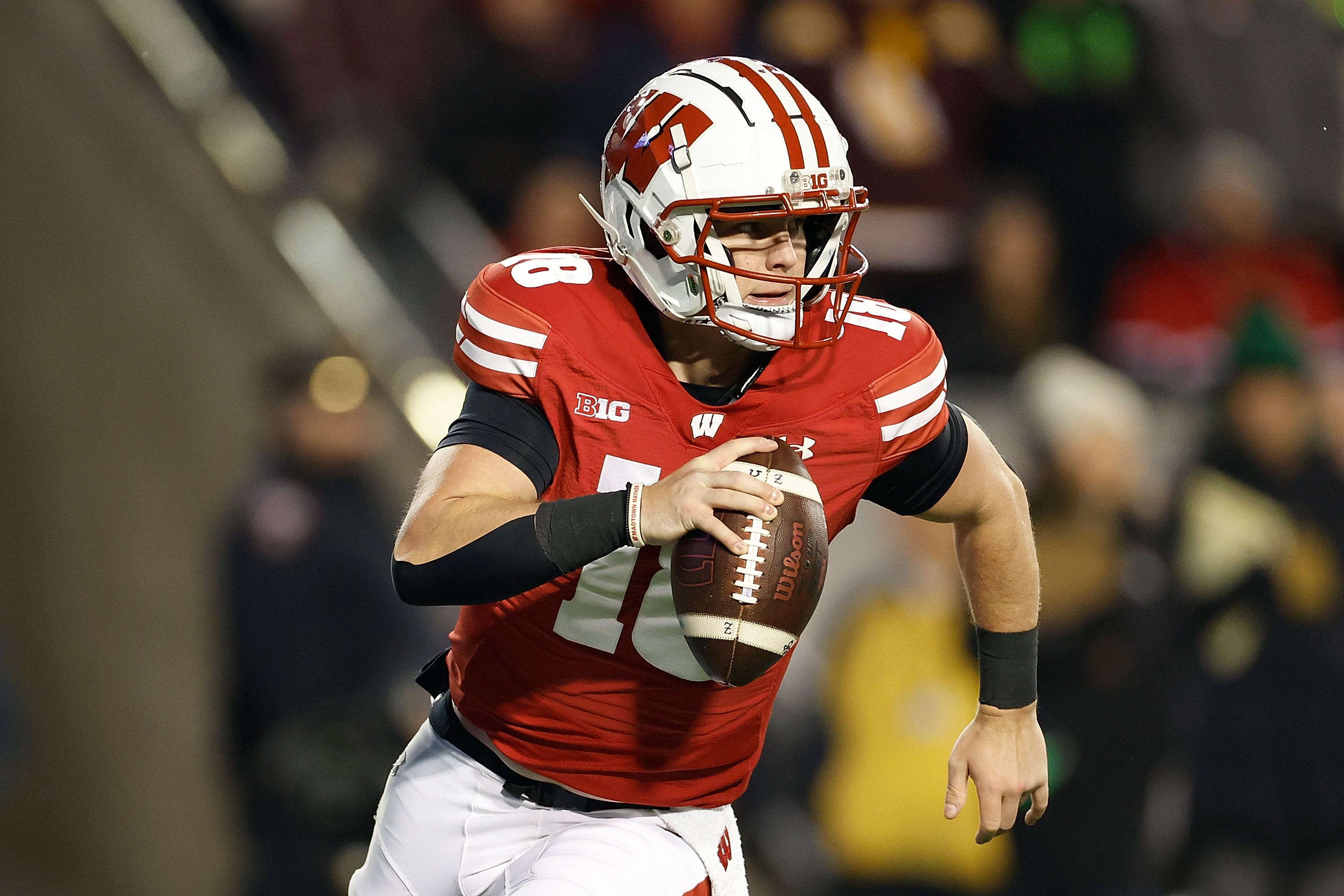

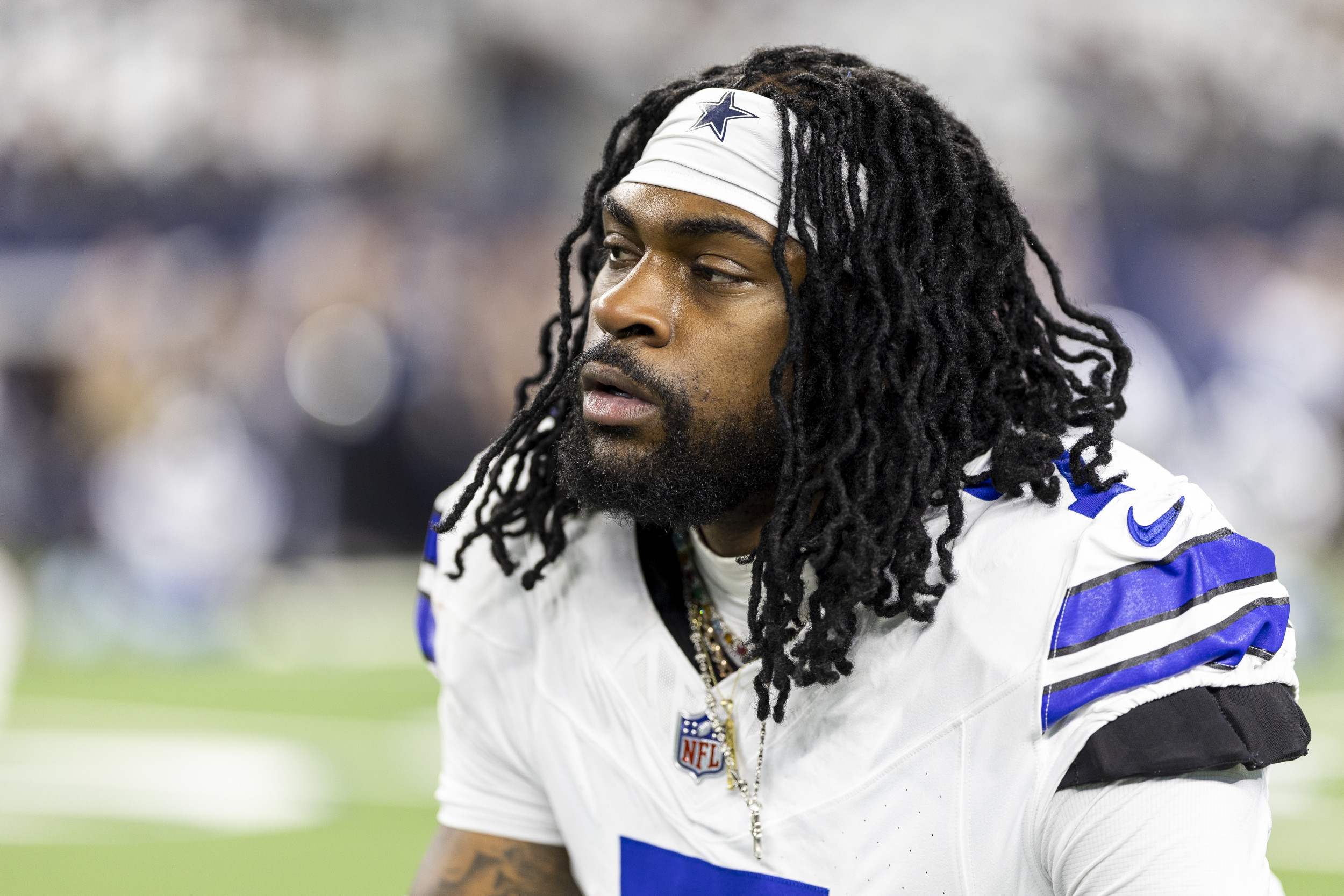
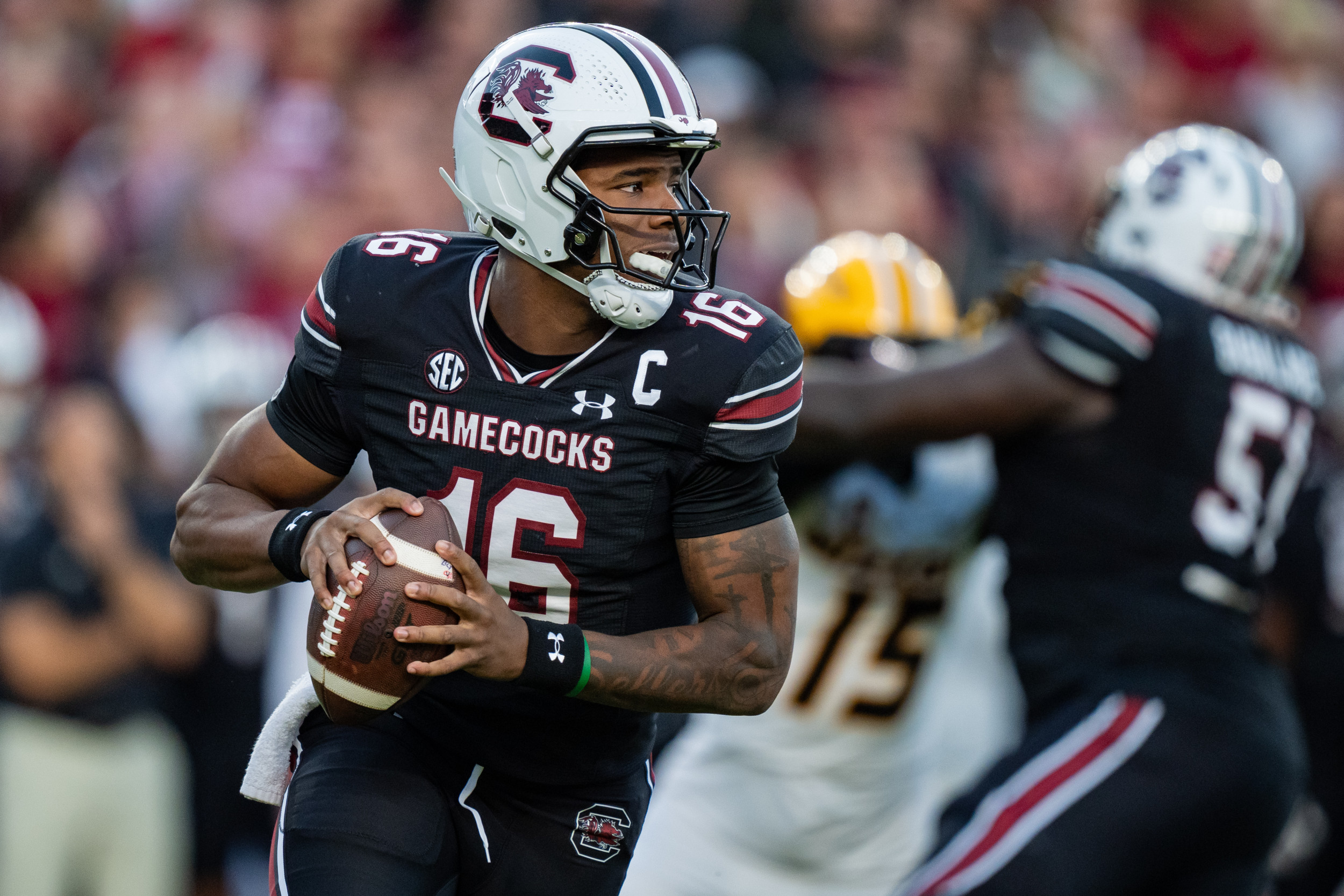

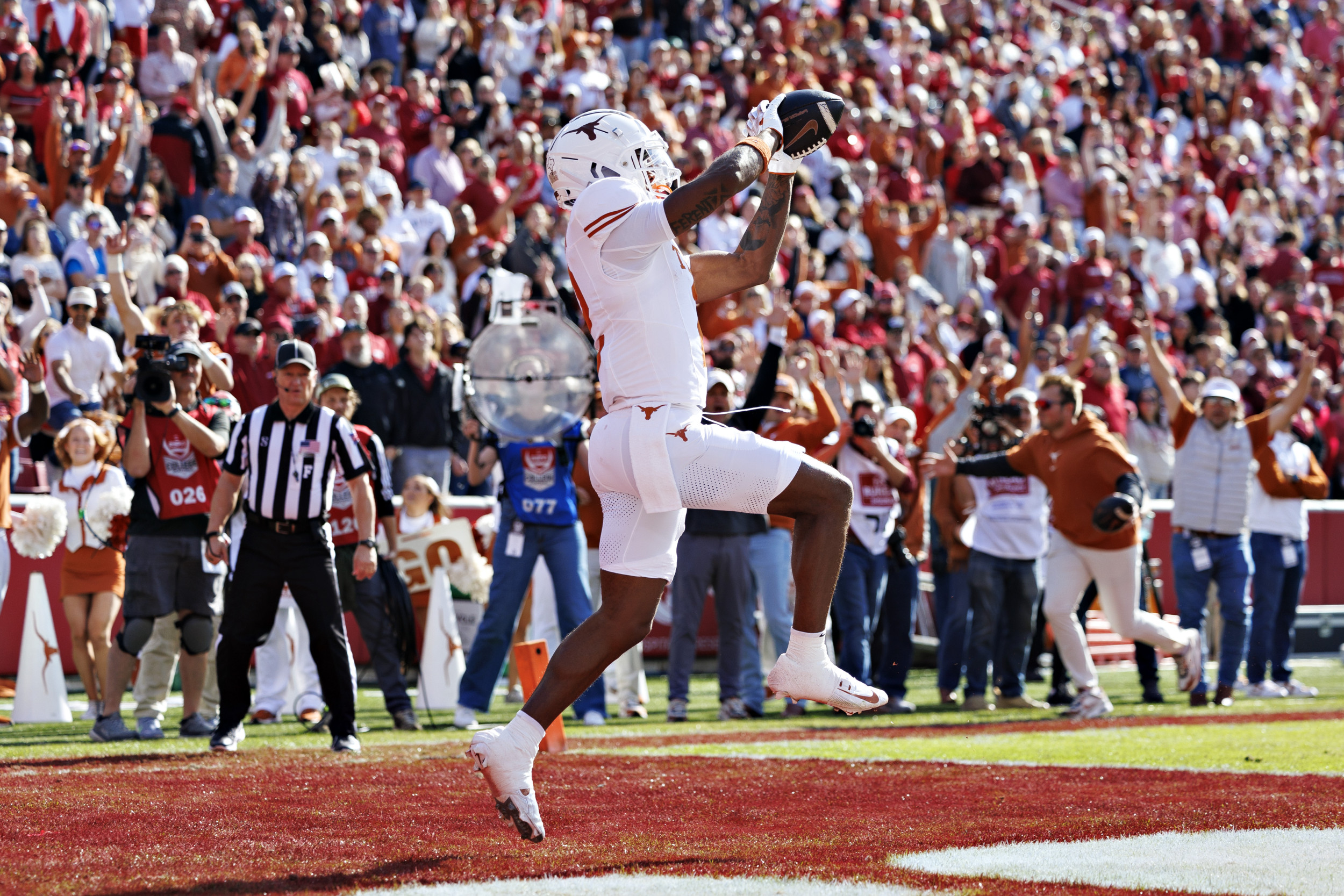
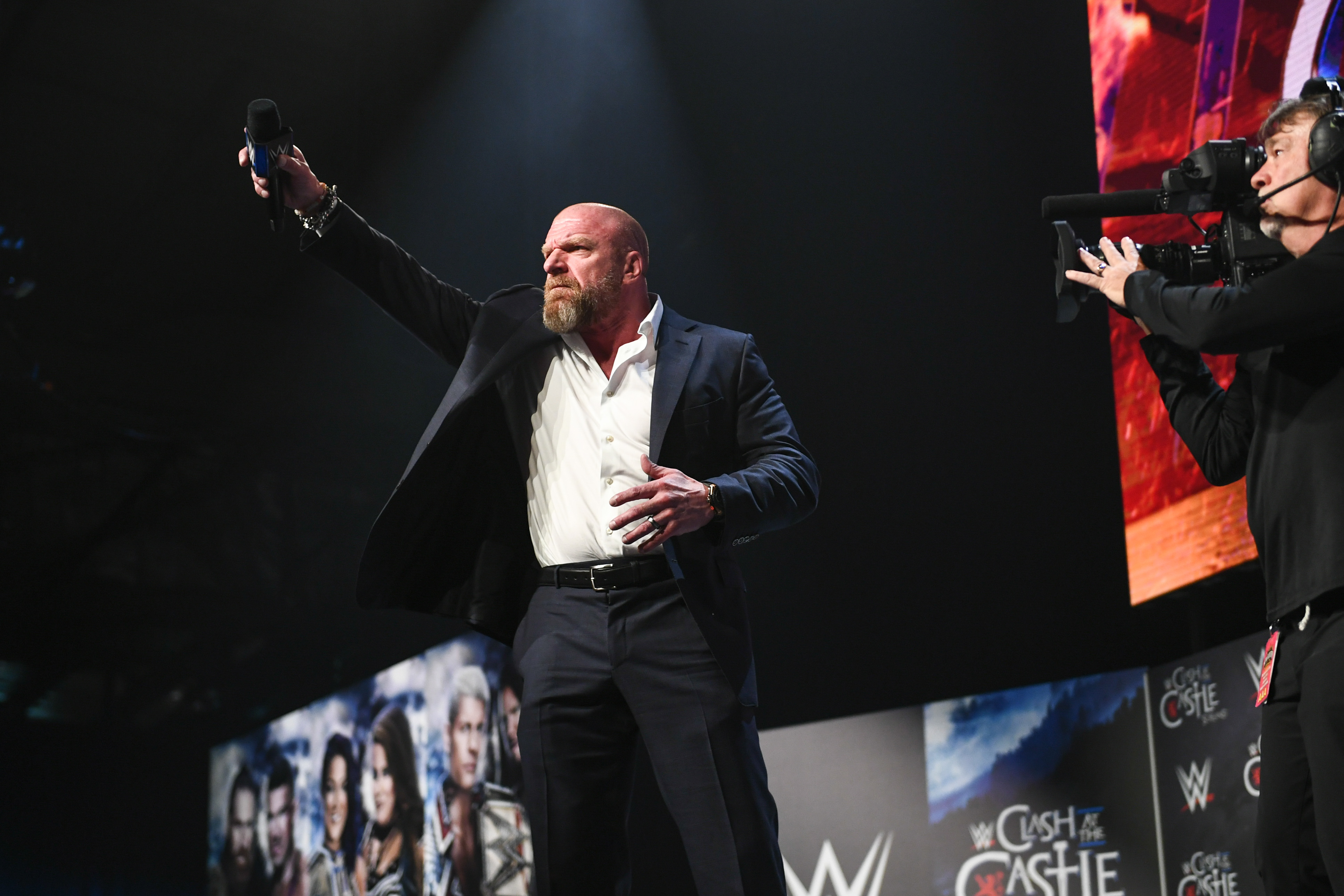
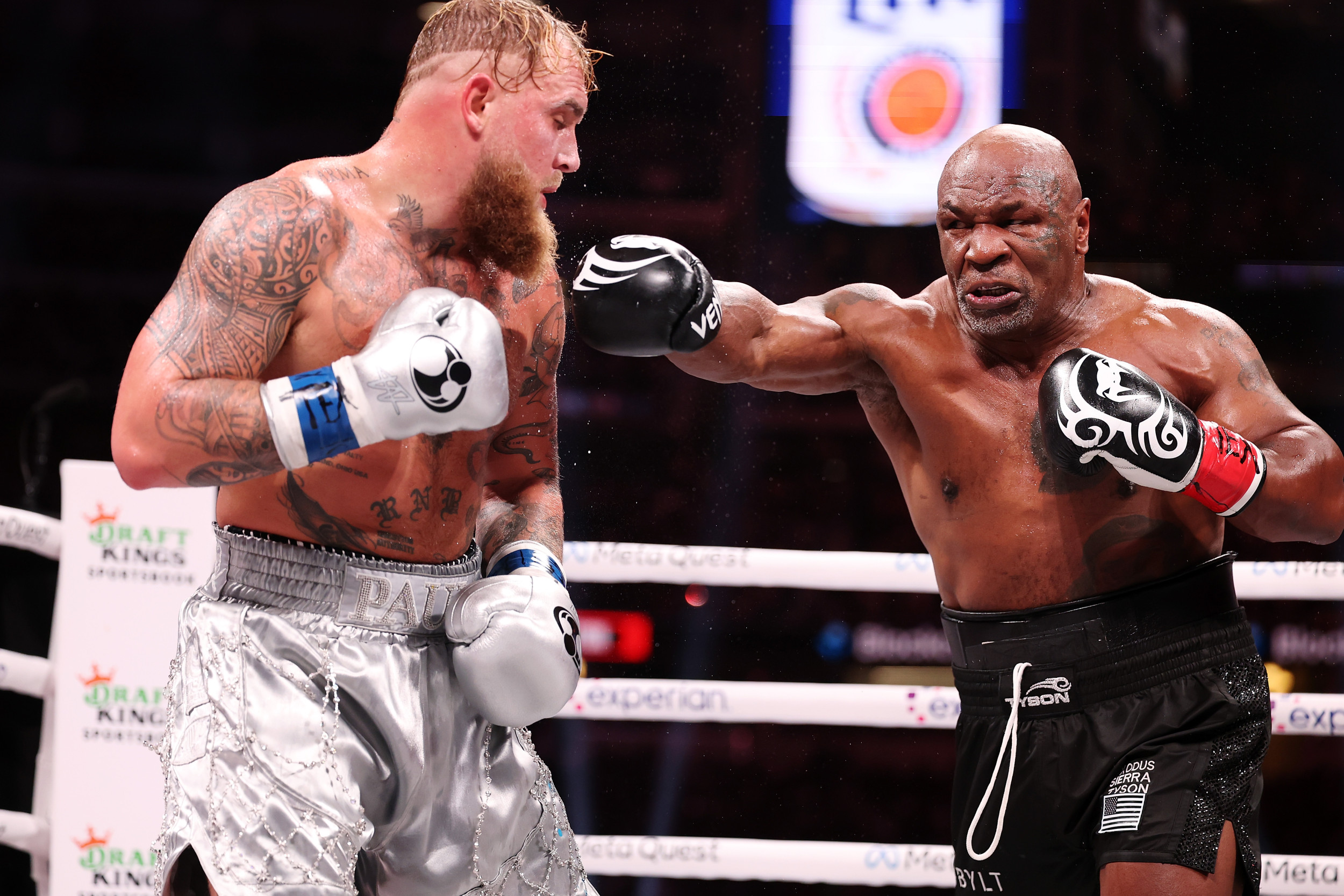
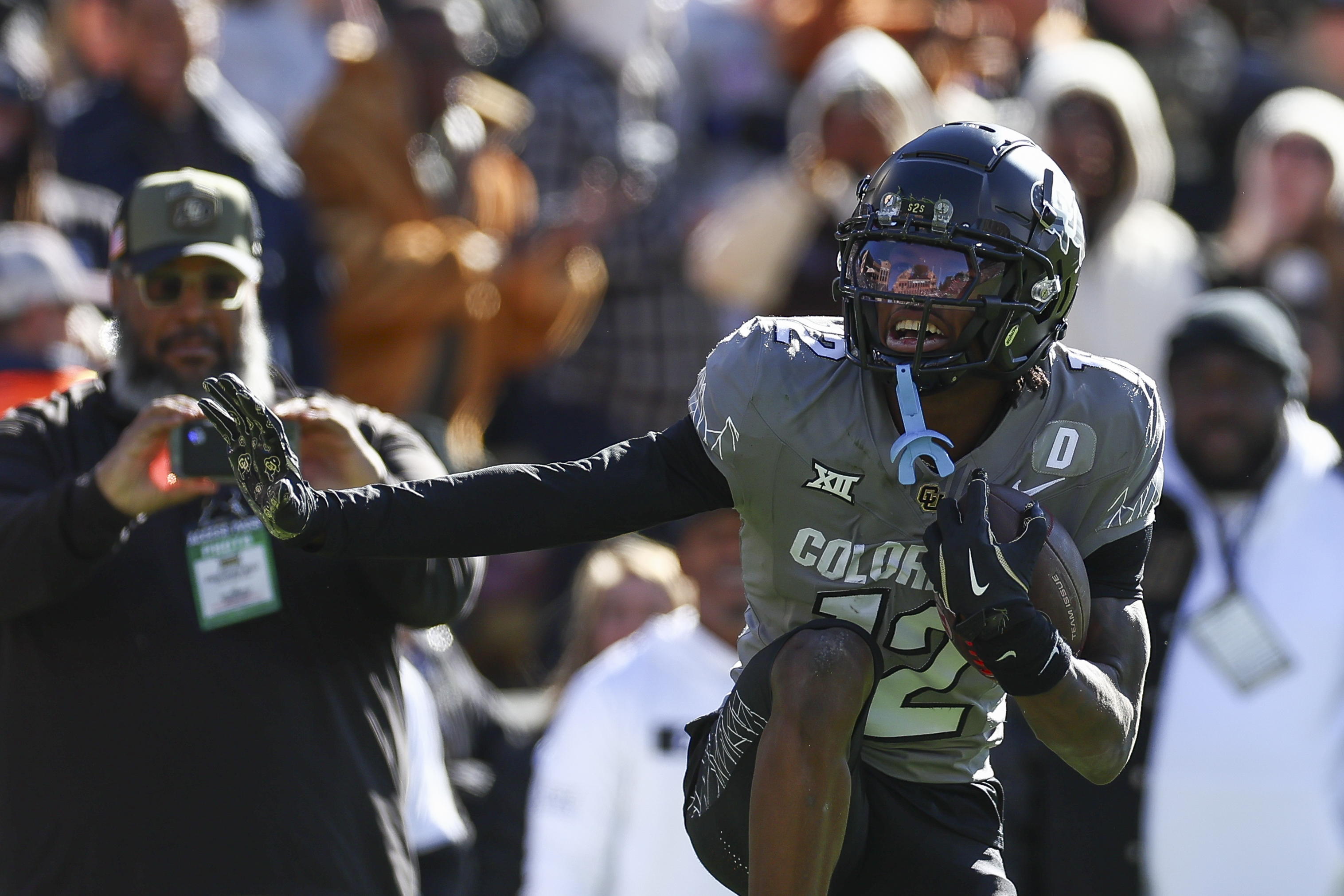
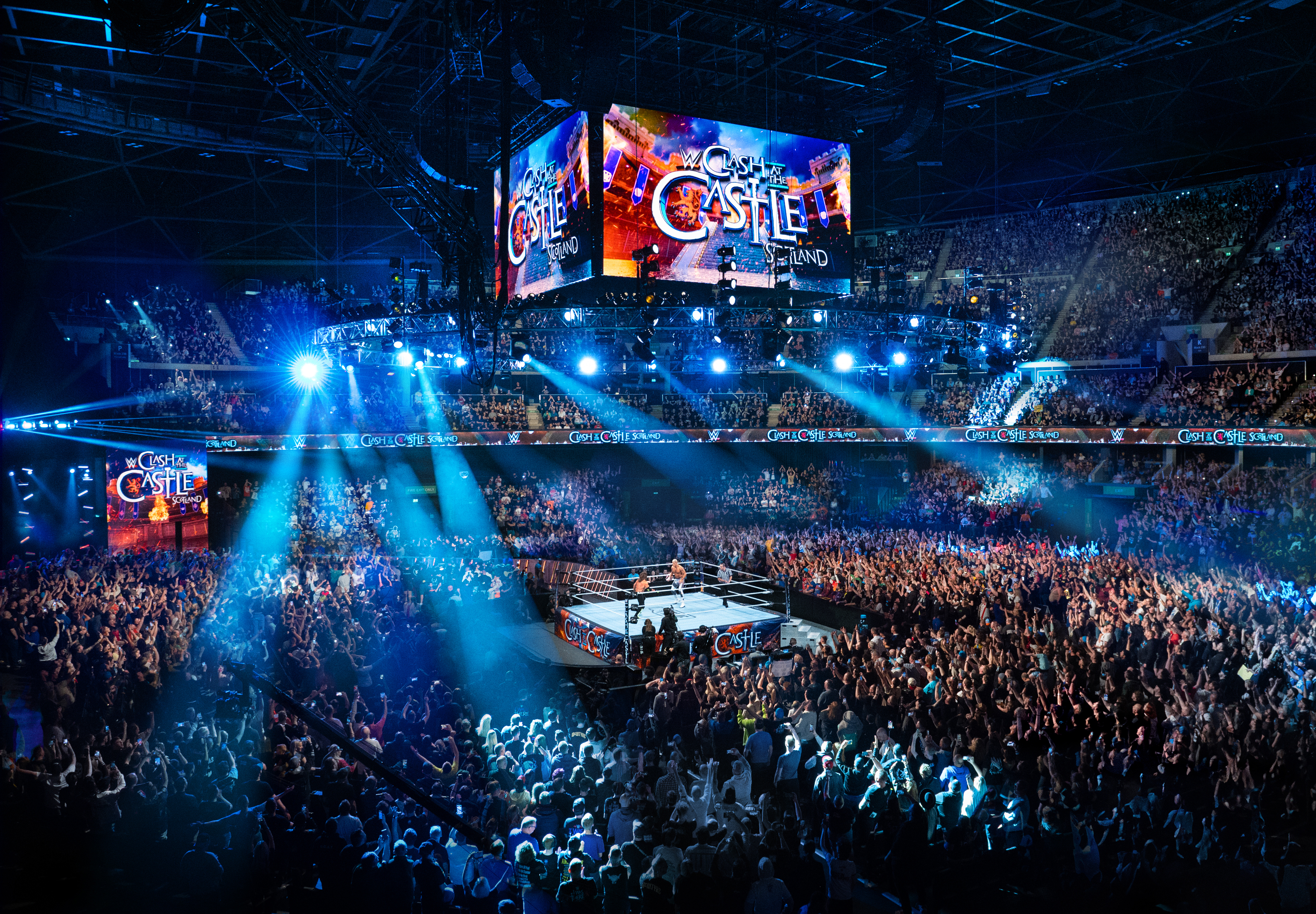
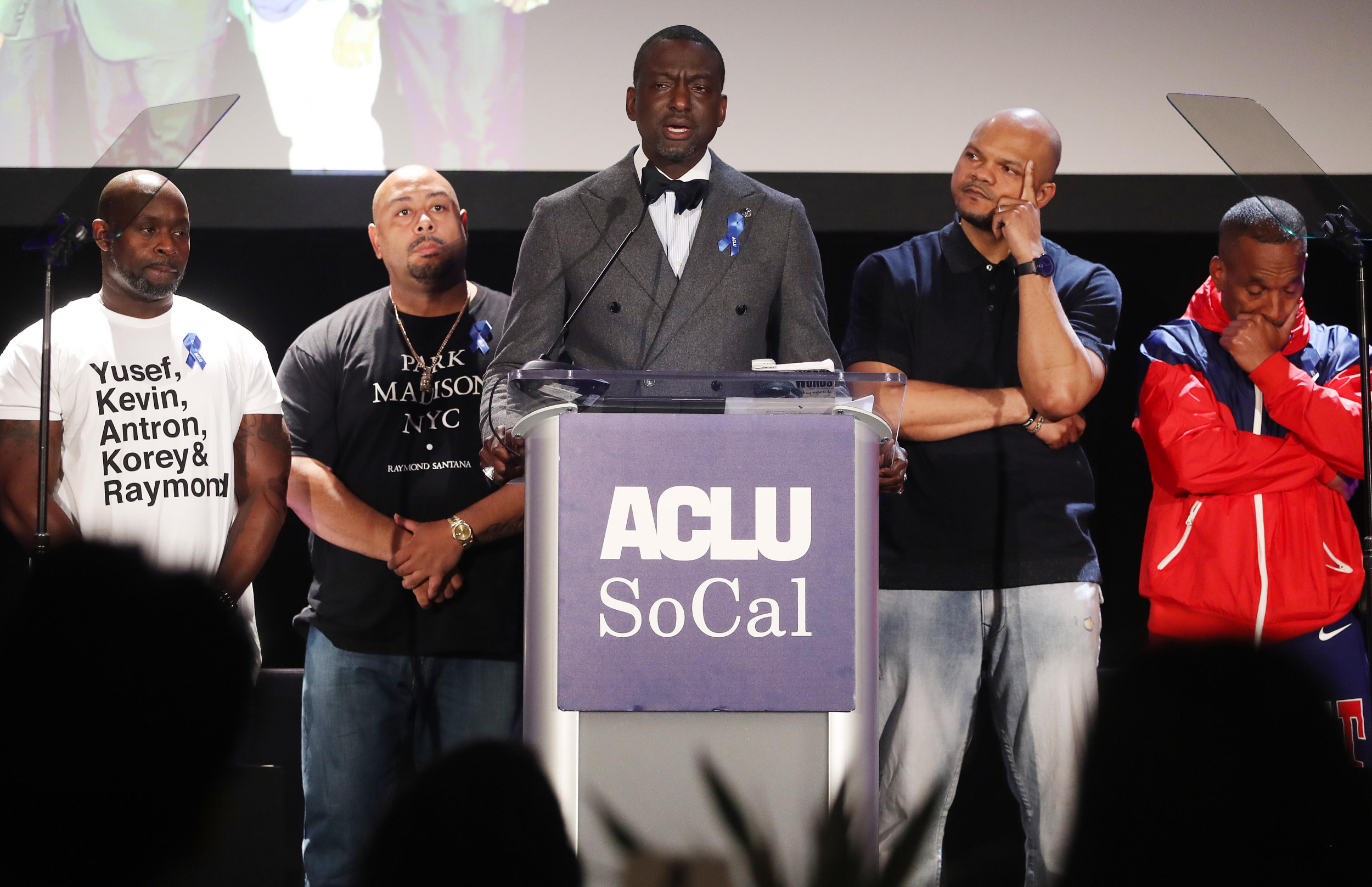








 English (US) ·
English (US) ·